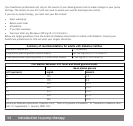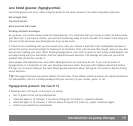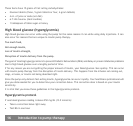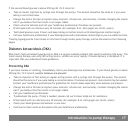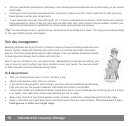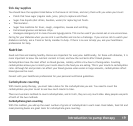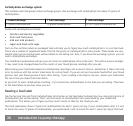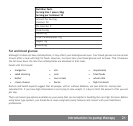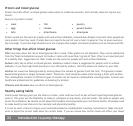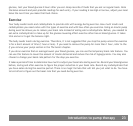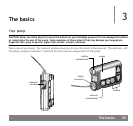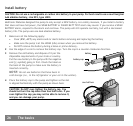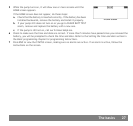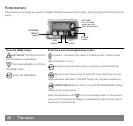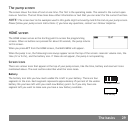
Protein and blood glucose
Protein has little effect on blood glucose when eaten in moderate amounts, and normally does not require any
insulin.
Sources of protein include:
• meat • fish • poultry
• eggs • cheese • peanut butter
• tofu • dried beans • dried peas
Protein needs are the same for people with and without diabetes, unless kidney disease is present. Most people eat
more protein than they need. Protein does not need to be part of every meal. In general, five to seven ounces a
day is enough. If you have high cholesterol or are trying to lose weight, eat leaner proteins such as chicken and fish.
Other things that affect blood glucose
Fiber may slow down the rise in blood glucose after a meal. Fiber grams are not absorbed. They can be subtracted
from the Total Carbohydrate amount for foods or meals with more than 5 grams of fiber. Fiber is an important part
of a healthy diet. Suggestions for fiber intake are the same for people with and without diabetes.
Sodium (salt) has no effect on blood glucose. Moderate sodium intake is suggested for people with or without
diabetes. If you have high blood pressure or are affected by sodium, limit the amount of sodium in your diet.
Alcohol can cause low blood glucose by slowing down the release of glucose from the liver. This glucose release
keeps blood glucose in target between meals. Therefore, food should be eaten while having a drink with alcohol.
The carbohydrate content of different types of alcohol can be found in carbohydrate counting books. Consult your
healthcare professional for guidelines on bolusing for alcohol.
Vitamins and minerals have no effect on blood glucose.
Healthy eating habits
Insulin pump therapy gives you the choice of when, what and how much to eat without impacting blood glucose
control. This gives you the flexibility to sleep-in, postpone or skip meals, and eat snacks—the same as people who
do not have diabetes. Be careful to not abuse this freedom and compromise your nutritional health. All people need
to make healthy food choices to be mentally and physically healthy.
It is not an exact science to figure your meal bolus based on carbohydrate counting. Sometimes it takes trial and
error to figure the correct meal bolus for certain foods. If you are unsure how certain foods will effect your blood
22 Introduction to pump therapy



